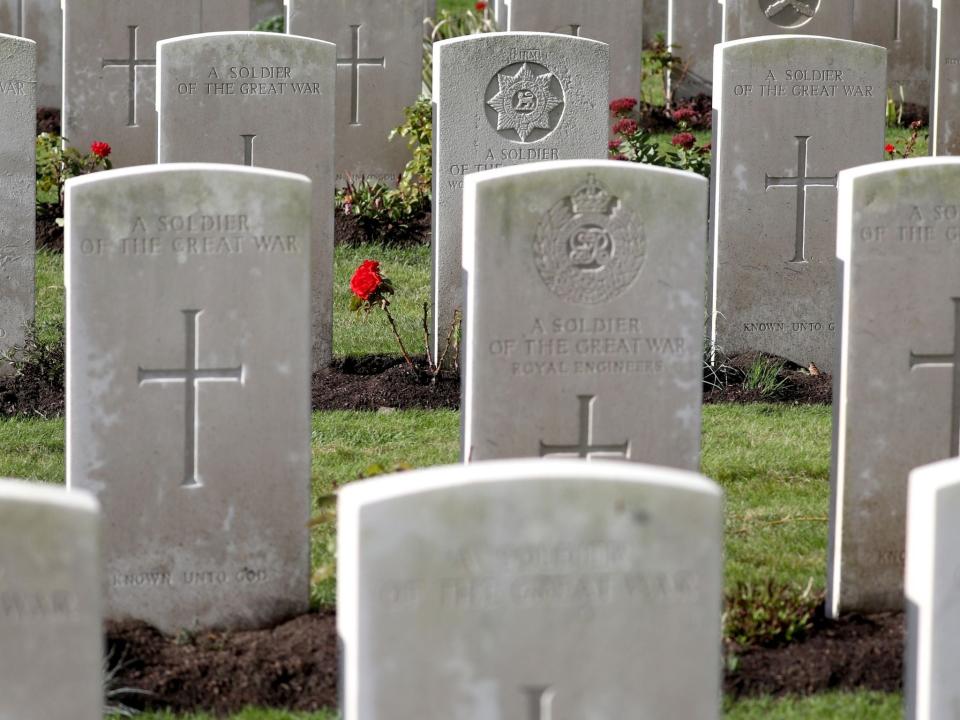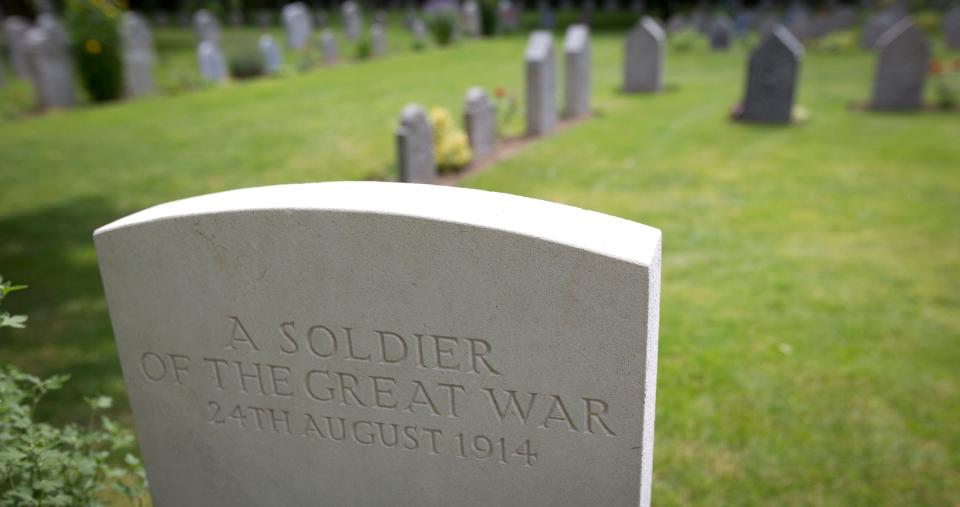Boris Johnson apologises after ‘pervasive racism’ led to failure to commemorate Black and Asian troops

Prime Minister Boris Johnson has apologised on behalf of the government for failures to properly commemorate black and Asian service personnel who died fighting for the British Empire.
An investigation found that “pervasive racism” meant that at least 116,000 predominantly African and Middle Eastern First World War casualties “were not commemorated by name or possibly not commemorated at all” by the Commonwealth War Graves Commission (CWGC).
In a statement issued on Thursday afternoon, Mr Johnson said he’s “deeply troubled” by the inquiry’s findings.
“During the First World War, millions of people from Africa, Asia, the Caribbean and the Middle East fought for Britain in the struggle against tyranny,” he said.
“Their contribution to victory was immense, not just in numerical terms but in their courage and valour, and many paid the ultimate price so that we might live in peace and freedom today.
“I am deeply troubled by the findings of the Special Committee that not all of our war dead were commemorated with equal care and reverence. On behalf of the Government, I offer an unreserved apology. I welcome the fact that the Commonwealth War Graves Commission has accepted all of the Committee’s recommendations and that it will now re-examine records and make amends wherever possible.
“Our shared duty is to honour and remember all those, wherever they lived and whatever their background, who laid down their lives for our freedoms at the moment of greatest peril.”
Speaking in the Commons today, Defence Secretary Ben Wallace expressed “deep regret” about the review’s conclusion and said: “There can be no doubt that prejudice played a part in some of the commission’s decisions.
“In a small number of cases, too small, where commission officials had a greater say in the recovery and marking of graves, overarching imperial ideology connected to racial and religious differences were used to divide the dead and treat the dead and treat them unequally (...).”

The special committee behind the investigation was established by the Commonwealth in 2019 after a critical documentary on the issue, titled Unremembered and presented by Labour MP David Lammy.
Mr Lammy, the Shadow Justice Secretary, called the report’s findings a “watershed moment in the life of this country”.
“There is no higher service than to die for your country in war and it is the case that every single culture on the planet honours those who die in those circumstances.
“It is a great travesty and a stain and a shame that this country failed to do that for Black and brown people across Africa, India and the Middle East.”
The Tottenham MP told the Defence Secretary that further resources will be necessary to commemorate Black and brown troops in the “appropriate way”, suggesting that archives should be revisited to find names of the war dead and commemorate.
“We use the word ‘white wash’ for a reason. Let there be no more white washing,” Mr Lammy said.
“The unremembered will be remembered and future generations of young people in our own country, and the Commonwealth, will understand their sacrifice.”
Responding to Labour, Defence Secretary Ben Wallace expressed “regret” about what he learned of the First World War in his education, saying he was taught “little” about the contribution from Commonwealth countries.
He told the Commons: “It is a deep point of regret for me that in my own education what I was taught of the First World War predominantly boiled down to the Somme and poets, but very little about the contribution from the Commonwealth countries and the wider at the time British Empire.
“As I go round the world as Defence Secretary, it is remarkable to be reminded of those contributions.”
He later added: “I think it is important to remember we have excluded a lot of that from our children’s education and I think we have to absolutely rectify that.”
Originally named the Imperial War Graves Commission, the CWGC was founded in 1917 to commemorate those who died in the war.
But the investigation found that the failure to properly commemorate the individuals was “influenced by a scarcity of information, errors inherited from other organisations and the opinions of colonial administrators”.
“Underpinning all these decisions, however, were the entrenched prejudices, preconceptions and pervasive racism of contemporary imperial attitudes,” the report added.
Read More
Floyd's murder 'ripped the blinders off' systemic racism in US, says Biden
Climate action is not ‘politically correct bunny-hugging’, Boris Johnson says

 Yahoo Movies
Yahoo Movies 